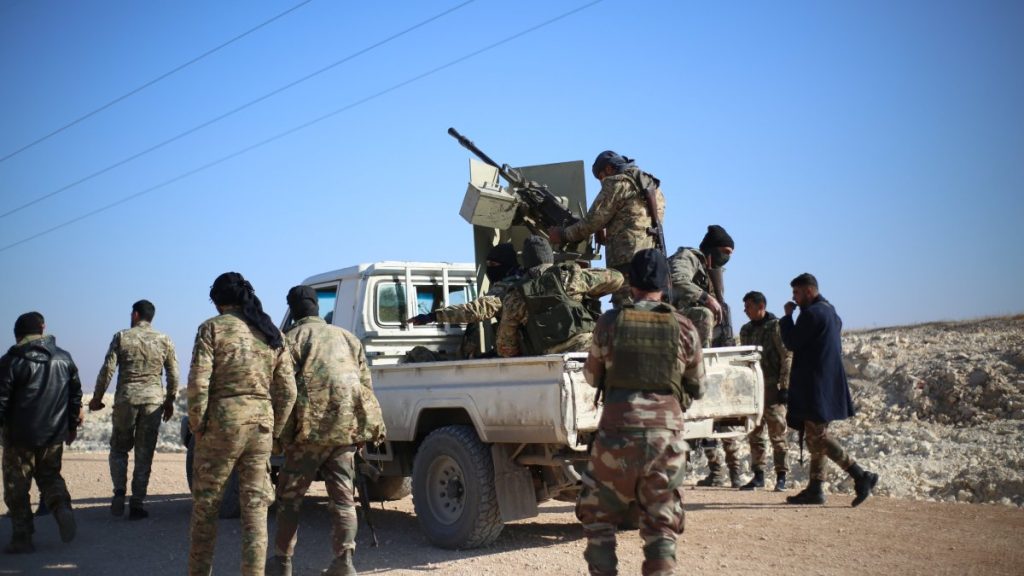Türkiye expects Syria’s new rulers and the PKK/YPG to reach an agreement “among themselves” for the terrorist group’s exit from the northern territories, according to Defense Minister Yaşar Güler.
“The PKK/YPG is resisting leaving Ain al-Arab and carrying out attacks in the Hasakah region. The new administration is advising the terrorist group to lay down arms and leave Raqqa and Taqba,” Güler said Thursday at a parliamentary budget meeting in the capital, Ankara.
He said Ankara believes the PKK/YPG will leave Sirrin and Ain al-Arab, also known as Kobani, to the new administration in Damascus without disturbing the citizens or leaving them vulnerable to larger clashes.
Güler’s remarks came after the YPG leader Ferhat Abdi Şahin, code-named “Mazloum Kobani,” said “non-Syrian” members of the PKK/YPG would leave if a “cease-fire” is reached with Türkiye in northern Syria.
For Türkiye, the YPG is an extension of the PKK, which has led a decades-old terror campaign inside its own borders, killing at least 40,000 people to create a so-called Kurdish state. Ankara says the YPG is on par with Daesh and should have no presence in the new Syria.
In recent years, Türkiye has deployed troops and worked with local allies such as the opposition Syrian National Army (SNA) to prevent this and keep locals safe from terrorist oppression.
The SNA currently has the group cornered in northern Syria after taking back Tal Rifaat and Manbij, two key strongholds, from the PKK/YPG earlier this month, while anti-regime forces led their lightning offensive against Bashar Assad earlier this month.
YPG leader’s comments mark the first time he has confirmed that non-Syrian YPG members, namely PKK members, have come to Syria to support YPG during their campaign.
Türkiye, the U.S. and other countries deem the PKK a terrorist group, although Washington has been the main ally to the YPG in the anti-Daesh fight in northern Syria, much to Ankara’s chagrin.
YPG leader Şahin claimed his group had no organizational ties to the PKK despite admitting PKK members had come to Syria to join their ranks.
He claimed PKK members helped the YPG in the fight against Daesh over the last decade and “while some of them returned, others stayed to help fight Daesh” and it would be “time for them to go home” if a cease-fire was reached.
“There is a different situation in Syria; we are now starting a political stage. Syrians must solve their problems themselves and establish a new administration,” he said.
The United States, which views the YPG as a key partner in countering Daesh, has claimed it had been mediating to stop the hostilities between Türkiye and the Syrian Arab groups it supports and the YPG.
On Wednesday, the U.S. State Department said a cease-fire around Manbij had been extended until the end of the week. But a Turkish defense ministry official on Thursday said there was no talk of a cease-fire deal with the YPG.
“As Türkiye, it is out of the question for us to have talks with any terrorist organization. The (U.S.) statement must be a slip of the tongue,” the Turkish Defense Ministry official said.
Şahin claimed Türkiye and the SNA were preparing to attack Ain al-Arab at the border, prompting the YPG to push for a withdrawal of its members from the area.
According to Şahin, the area would be left in the hands of an internal security force with U.S. forces present “to supervise this area – provided that there is a complete truce.”
“On the other hand, we are preparing ourselves to repel any attack if it happens,” he said.
But a Turkish defense ministry official on Thursday also said Türkiye trusts the SNA to liberate YPG-controlled areas in northern Syria, signaling Ankara does not plan an imminent operation into the region by its military.
Turkish media reports on Friday speculated the PKK was “aware of its waning strength” in northern Syria, where Ankara’s influence has increased following the toppling of Assad.
Murat Karayılan, one of PKK’s leaders, has said the PKK “officially declares we are not present in Syria.”
The group this week dispatched a delegation to Damascus to meet with Hayat Tahrir al-Sham (HTS) leader Ahmad al-Sharaa – better known as Abu Mohammed al-Golani, who led the anti-regime advance but was turned away.
In an interview published Wednesday by Türkiye’s Yeni Şafak daily, al-Sharaa said his government would have a “strategic relationship” with Ankara, while HTS’ military chief told Agence France-Presse (AFP) on Tuesday that Syria’s new leadership would also rule over YPG-held areas.


